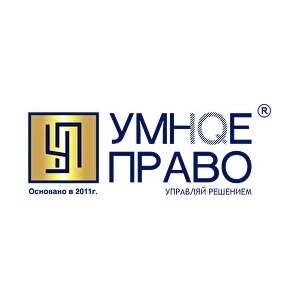Best Tax Lawyers in Omsk
Share your needs with us, get contacted by law firms.
Free. Takes 2 min.
List of the best lawyers in Omsk, Russia
About Tax Law in Omsk, Russia
Tax law in Omsk, Russia, is an integral part of the broader Russian tax framework, governed by the Russian Tax Code. Omsk, being one of the major cities in Russia, follows federal tax regulations while also adhering to regional guidelines relevant to its economic landscape. Taxes in Omsk encompass federal, regional, and local levels, affecting individuals, businesses, property, and more. Compliance with tax laws is essential for residents and businesses to avoid legal complications.
Why You May Need a Lawyer
Taxation can be complex, and there are several situations where you might benefit from legal advice. These include starting or managing a business, understanding deductions and credits, dealing with audits or disputes with tax authorities, estate planning, and ensuring compliance with changing tax laws. A lawyer can help navigate the intricacies of the tax system, minimize liabilities, and resolve disputes with the Federal Tax Service of Russia.
Local Laws Overview
Key aspects of local tax laws in Omsk include personal income tax, which varies based on residency status and income sources. Corporate taxes also apply to businesses operating within the region, taking into account profits, payroll expenses, and property assets. The municipal property tax affects both individuals and businesses holding real estate in Omsk. Additionally, Value-Added Tax (VAT) applies to goods and services within the city. Being a regional center, Omsk may also offer specific tax incentives to encourage investment and business growth.
Frequently Asked Questions
What is the income tax rate for individuals in Omsk?
The standard individual income tax rate in Russia is 13%, but there are different rates for non-residents and high-income earners.
Do businesses in Omsk have unique tax obligations?
Businesses must adhere to federal tax laws, which include a corporate tax rate of 20%. They may also be subject to regional fees and levies.
How does VAT affect purchases in Omsk?
The VAT rate in Russia is generally 20%, applied to most goods and services. Some exemptions and reduced rates apply in specific cases.
Are there any local incentives for businesses?
Omsk may offer regional tax incentives to attract investment, primarily aimed at sectors like technology, manufacturing, and agriculture.
What should I do if I receive a tax audit notice?
It's advisable to consult with a tax attorney or accountant to prepare your documents and represent your case adequately to the tax authorities.
How are property taxes determined in Omsk?
Property tax is based on the cadastral value of the property. The exact rate can vary depending on the property's location and use.
Can I deduct education expenses on my taxes?
Certain education expenses might be deductible under Russian tax law, subject to specific criteria and limits.
What are the consequences of not paying taxes?
Failure to pay taxes can result in penalties, interest charges, and legal action by the Federal Tax Service.
How can expatriates manage their tax obligations in Omsk?
Expatriates may need to consider double taxation treaties and ensure compliance with both Russian and home country tax obligations.
Is electronic filing of taxes available in Omsk?
Yes, electronic filing is available and encouraged for both individuals and businesses through the Federal Tax Service’s online platforms.
Additional Resources
For further assistance, individuals and businesses can consult the Federal Tax Service of Russia, which provides information and support. Additionally, local tax consultancy firms and Omsk's city administration can provide guidance tailored to regional regulations. Professional organizations, such as chambers of commerce, may also offer resources or networking opportunities for tax-related inquiries.
Next Steps
If you need legal assistance, consider consulting a tax attorney or a reputable accounting firm in Omsk to assess your situation and provide guidance. Start by preparing documentation related to your tax matters, and schedule meetings to explore your legal options. For ongoing support, maintaining a relationship with a tax professional can be beneficial to navigate future challenges.
Lawzana helps you find the best lawyers and law firms in Omsk through a curated and pre-screened list of qualified legal professionals. Our platform offers rankings and detailed profiles of attorneys and law firms, allowing you to compare based on practice areas, including Tax, experience, and client feedback.
Each profile includes a description of the firm's areas of practice, client reviews, team members and partners, year of establishment, spoken languages, office locations, contact information, social media presence, and any published articles or resources. Most firms on our platform speak English and are experienced in both local and international legal matters.
Get a quote from top-rated law firms in Omsk, Russia — quickly, securely, and without unnecessary hassle.
Disclaimer:
The information provided on this page is for general informational purposes only and does not constitute legal advice. While we strive to ensure the accuracy and relevance of the content, legal information may change over time, and interpretations of the law can vary. You should always consult with a qualified legal professional for advice specific to your situation.
We disclaim all liability for actions taken or not taken based on the content of this page. If you believe any information is incorrect or outdated, please contact us, and we will review and update it where appropriate.








